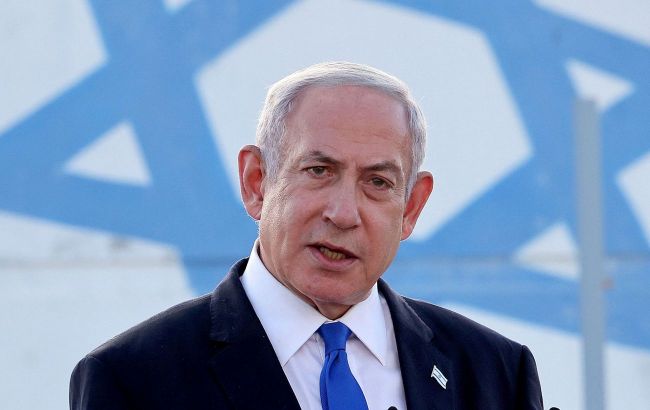Netanyahu demands open-ended control of Gaza's border with Egypt
 Photo: Israeli Prime Minister Benjamin Netanyahu (getty images)
Photo: Israeli Prime Minister Benjamin Netanyahu (getty images)
Israeli Prime Minister Benjamin Netanyahu has stated that Israel must maintain indefinite control over the Gaza-Egypt border. Control of the Philadelphi corridor remains a key sticking point in ceasefire negotiations regarding the Gaza Strip, according to AP.
Netanyahu's comments come as the United States develops a new proposal for a ceasefire and hostage release, aiming to break a prolonged deadlock and end a conflict that has lasted nearly 11 months.
As part of a multi-phase truce agreement, Hamas has demanded a possible complete withdrawal of Israel from Gaza.
Egypt, which is mediating the negotiations along with the US and Qatar, has also called for specific timelines for the withdrawal of Israeli troops from the Philadelphi corridor. On Wednesday, the United Arab Emirates, which established official relations with Israel in 2020, also criticized Tel Aviv's stance.
In a conversation with foreign journalists, Netanyahu reiterated his position that Israel must retain control of the border to prevent Hamas from rearming through smuggling weapons into Gaza. He emphasized that a vital part of the military objective is to ensure that Hamas does not repeat the October 7 attack on Israel.
He stated that Israel would consider leaving the corridor only when it has alternative forces to control it.
"Bring me anyone who will actually show us … that they can actually prevent the recurrence of smuggling. I don’t see that happening right now. And until that happens, we’re there," the Prime Minister added.
In mid-August, US officials indicated that efforts to reach an agreement were nearing the final stage.
US Secretary of State Antony Blinken described the proposed deal as "probably the best, maybe the last opportunity" for a ceasefire and hostage release.
Both Israel and Hamas have accused each other of obstructing the agreement.
Failure of the previous attempt
In July, Hamas gave initial approval to the US-backed proposal for a phased ceasefire in the Gaza Strip. The group dropped its key demand for a complete cessation of hostilities.
The first version of the peace plan failed, primarily due to Israel's reluctance to end military operations until all Hamas leadership was eliminated.

